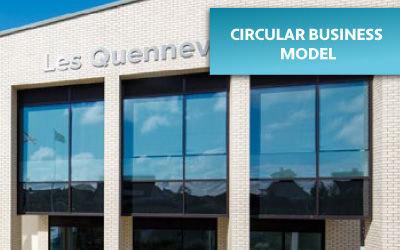Planet

Planet

“JT will be neutral in its own carbon emissions and will help our stakeholders to dramatically reduce their own carbon footprint by 2030”.

Our planet ambition focuses on a series of targets, under four key pillars of focus:
Power Consumption & Energy Efficiencies >
Travel – to work and at work >
Circular Business Model >
Value Chain >
Power Consumption & Energy Efficiencies
Electricity usage and cooling refrigerants are the primary drivers of Scope 1 and 2 carbon emissions and are a key focus for reduction for JT within our 10-year Strategy. Power consumption and energy efficiencies cover everything we do, from our high-tech Data Centres, Fixed and Mobile Networks to our various office buildings across the Bailiwicks. We have reviewed our portfolio and set some very ambitious targets centred around increasing our use of renewable energy, replacing the gases in our cooling systems with lower emission options and enabling our customers to consume less power. Replacement of our core and mobile networks is a priority programme for JT. We expect to see an initial increase in our consumption/carbon emissions during the delivery phase of the network replacement, however, longer term benefits include greater power efficiency, the capability to use renewable energy sources, and inclusion of circular economy principles.
Use sustainably
sourced energy
Transition 100% of consumption in Jersey to a Renewable Energy tariff by the end of 2027. This is almost 75% of JT’s CI consumption.
We are using a variety of methods to create an achievable pathway to reduction, including improving the supplier emissions data we collect and engaging with suppliers to share our sustainability goals.
As we replace obsolete power equipment, we consciously design more efficient solutions.
Having successfully completed the proof of concept to power a mobile RAN site in Sark from solar power, we shall be expanding the supply to include wind power. Longer term, we aim to roll these renewable energy solutions out across multiple sites where feasible.
A reduction
(or repurposing)
of our
property estate
Reduce and repurpose our footprint, through a review of our property portfolio that is based on our long-term future needs.
Reduce the impact of refrigerants
Use technology to enable the smart use of energy, to reduce our cooling requirements and in turn reduce the use of refrigerants which are harmful to the environment.
Reduce the impact of diesel-powered
generators
In 2022 we undertook a review of diesel usage in our generators to identify which generators could switch to Renewable Diesel and in Q4 we took our first delivery of renewable diesel.
Where feasible, we will use this renewable diesel in all generators, enabling a 90% reduction in emissions compared to using fossil fuel diesel.
Travel – to work and at work
Our cycle back to work scheme has had an excellent take up, and we continue to explore alternative modes of transport for our employees. Our programme for reducing and creating a more sustainable fleet is on track. In a post-covid environment it is imperative that we continue to focus on sustainable transport, as well as continuing to offer a work from home flexible option. JT recognise that to enable the Government of Jersey to deliver its Carbon Neutral strategy, it is necessary to collaborate with other organisations to identify areas for operational and environmental efficiencies, including how we utilise transportation for supplying goods and services to our local customer base.
Reduce carbon
impact from on Island
business travel
Since 2020, we have simplified the profile of our fleet, from 12 different vehicle types, to 6.
35% of JT's fleet is currently made up of Electric Vehicles, and we continue to assess the type of vehicles we use, and the most environmentally beneficial power sources, including both electricity and biofuel options.
JT strives to resolve as many incidents as possible using remote diagnostic tools to enhance the customer’s experience and avoid dispatching engineers unnecessarily. During 2022 there were 800 less van rolls to residential properties for fibre issues in comparison to the previous year. Our plans to reduce the physical size of our vehicles and consider pedal powered transport will provide further efficiencies.
Improve employee travel
to and from
work
Since its launch, 20% of JT employees have been granted a subsidy towards a bicycle, committing to at least 2 days a week commuting by bicycle. We will continue to promote this together with our bike servicing scheme.
In 2022 we also launched a discount scheme for EVie bikes, cars and vans, and are continuing to engage with local transport suppliers to offer discounted rates for employees.
Eliminate non-essential
business travel
Through our Smart Ways of Working, we continue to enable our people to work flexibly and remotely and to only travel where there is an essential business need.
Our travel policy requires consideration of lower carbon alternatives to flying, and we continue to offset emissions from essential travel through the Durrell Rewild Carbon Scheme.
Circular Business Model
The importance and benefit of a circular business model is evident. It encourages consumers around the world to reuse, repair, recycle - but for habits to change, then businesses must allow and champion the change. The ethos is to keep waste to a minimum and by doing so, increasing the life cycle of the products we sell. That is why we offer all our devices over a three-year payment plan, which encourages our customers to keep their devices for longer than the status quo. Our commitment to a circular economy is far broader than this, as we’re also committed to a single-use plastic free future, supplier recycled packaging, and the erasing, refurbishing, redistributing or recycling of decommissioned equipment. As we develop our network and services, we are continuously looking at alternative business models that incorporate circular principles, including sourcing products designed for durability, maintenance and repair, and the sharing of these products amongst users, reducing the need to create more products.
Provide options
for customers to
purchase
refurbished
iPhones
Refurbish
legacy network
equipment
We continue to utilise a specialist partner to either refurbish and redistribute legacy equipment in other markets so that it is reused, or ensure it is recycled in line with WEEE regulations, supporting the responsible disposal of electronic waste.
Value Chain
Our value chain encompasses all our activities to bring our products and services from conception to end use and beyond, from raw materials, to the supply chain, right down to the disposal of packaging after use. At JT, further understanding and reducing environmental and social impacts created within our value chain is a core focus for 2023. Building on our Planet goals to help our stakeholders reduce their carbon footprints and ultimately our own supply chain emissions, we continue to engage with our suppliers to collaborate, share our climate ambitions, and improve on the quality of sustainability data that we collect from them. We recognise that impact in this area can only be achieved through strong collaboration.
Halve our supply chain
emissions
by 2030
We are using a variety of methods to create an achievable pathway to reduction, including improving the supplier emissions data we collect and engaging with suppliers to share our sustainability goals.
Wherever possible, we strive to consider sustainability within our buying choices, from selecting suppliers with a lower carbon footprint, to shifting to lower carbon alternative products or services where feasible.
Collecting supplier sustainability data
Our membership of global platforms; The Carbon Disclosure Programme (CDP) and Ecovadis Silver Rating enables us to share our performance with stakeholders and monitor the performance of our suppliers. This provides us with a deeper understanding of the ecological and societal impact areas to focus on.
Collaborating with our suppliers
our procurement
documentation and processes.
We continue to focus on ways we can support and collaborate with our suppliers through mutual knowledge exchange and sharing of best practice.
Product design, marketing and innovation
Our future plans include exploring ways we can provide more information to our customers on the sustainability impacts of our products, enabling them to make informed sustainable choices.
JT continue to work with industry peers and the Government of Jersey to identify areas of business model innovation, where we can work smarter by sharing resources, such as the local transportation of goods.
What we’ve done so far...
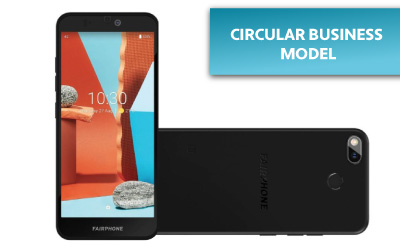
Now offering Fairphones,
the world’s most sustainable
smartphones
The Fairphone 3+ is now available on shop.jtglobal.com. Find out more
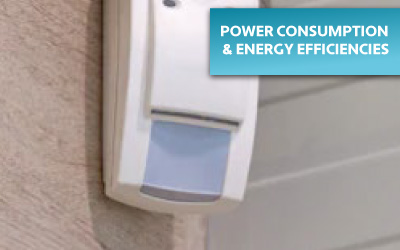
Installed PIR (passive infra-red) sensors in our main office buildings to ensure lights are not left on
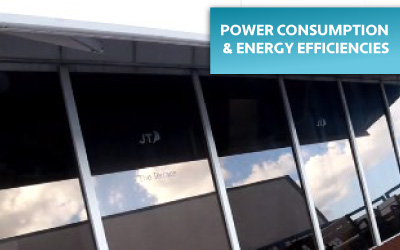
Placed solar film on the windows in our office buildings which in turn reduces the running of the Air Conditioning units

Installed time clocks on all water boilers to manage running times and reduces energy waste
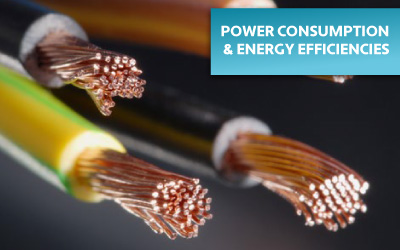
Decommissioned all copper broadband equipment in Jersey
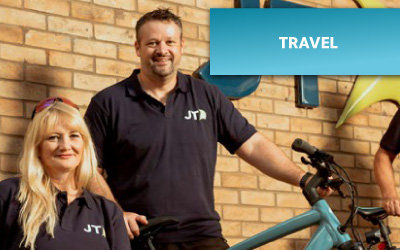
Cycle Back to Work scheme launch
In 2020, we launched a subsidy for our people to help towards the cost and use of a bicycle.
JT Supporting the Green Transport Revolution
A fleet of environmentally sustainable e-bikes and e-vehicles are being kept on the road thanks to the award-winning mobile network and technology developed by JT.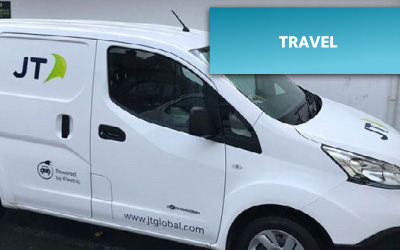
JT vehicles go electric
In 2020 we purchased our first 14 second hand electric vehicles and installed 4 duel charging stations.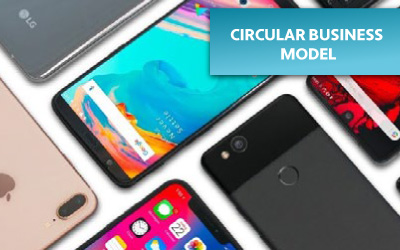
Refurbished phones to our people
Selling refurbished phones to our people acts as employee benefit whilst promoting a circular economy.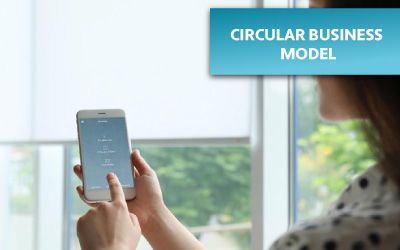
Launch of Zero1 and eco benefits
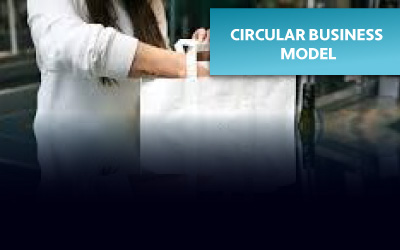
Paper bags in store
Our retail stores are using 100% new bio-degradable paper bags.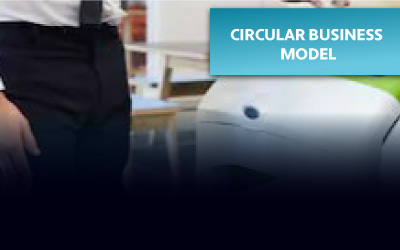
Provided recycling bins in all JT premises
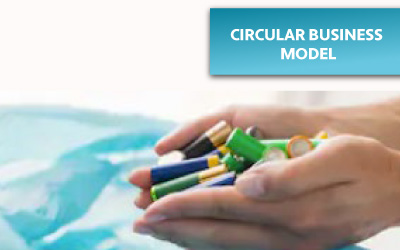
Included additional battery recycling facilities in all buildings
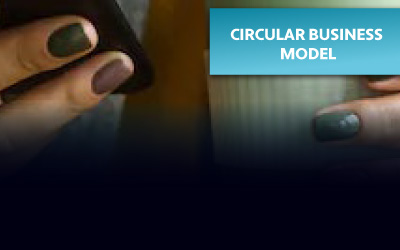
Removed all plastic cups from our offices
